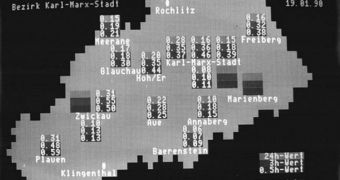According to a new research conducted by scientists at the Ohio State University (OSU), students taking various courses have the same easy time learning from computer simulations of the concepts they are studying, as they do from actual, practical experiments. In their experiments, the investigators looked at how the youngsters understood the phases of the Moon, when some of them learned from simulations, while others actually went out and collected the data themselves. In some cases, those from the simulation group learned the concept better than their peers.
According to OSU Associate Professor of Science Education Kathy Cabe Trundle, the lead author of the new study, the new research seems to suggest that placing computers capable of carrying out simulations in science classes may actually result in a better, faster and less expensive learning experience for children. Naturally, this only applies to some scientific knowledge, as some concepts need to be demonstrated experimentally, or cannot be modeled by the world's fastest supercomputers. “These results give us confidence that computer simulations can be effective in the classroom. But now we need to do further study to see if it works in others areas of science,” Trundle says.
“Our expectation was that the computer simulation would be at least as effective as direct observation in teaching about moon phases. When we did our analysis, the simulation was just as effective in teaching two aspects of moon phases, and more effective in a third aspect. So we were excited by that,” the researcher adds. The investigation was conducted on about 157 Master's students, who were well on their way to becoming teachers themselves, for the next generation. “We believe that the computer simulation was more effective at teaching moon sequences because the students who used it had a complete set of data. Those who observed the moon in nature didn't – there were cloudy days and nights and other reasons why they couldn't collect data every night they were supposed to,” she says.
Trundle also adds that this type of approach could also benefit teachers who do not always have the time or the means to conduct nature-based studies. It also circumvents days in which rain, snow, blizzards or other weather hazards could threaten the safety of the children while they are outside, learning. Classroom computers capable of simulating natural events could make the learning process a lot easier, and more convenient. “We're finding that technology can help students learn and understand scientific concepts in a way that may be easier for teachers and just as effective for students,” Trundle concludes.

 14 DAY TRIAL //
14 DAY TRIAL //